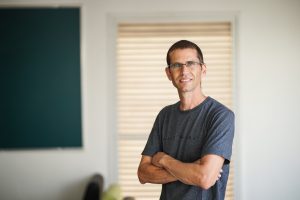Shared Memory
Top endorsement for Technion research into memory in biology, computing and materials
Associate Professor Omri Barak of the Technion has won a prestigious grant for an international research project on memory in biology, computing, and materials
Associate Professor Omri Barak, a member of the Rappaport Faculty of Medicine and a partner in the Network Biology Research Laboratories at the Lorry I. Lokey Interdisciplinary Center for Life Sciences & Engineering at Technion, has won an HSFP research grant. The grant will support a collaborative research project between Prof. Barak, who will be responsible for the theoretical aspect, and two experimenters: Prof. Nathan Keim of the Department of Physics at the University of Pennsylvania and Prof. Mathew Diamond of the International School for Advanced Studies (SISSA) in Trieste, Italy.
The goal of the project, which is entitled “Memory – from Material to Mind”, is to find common and connecting properties between different memory systems: biological memory, computational memory, and physical memory (shape-memory materials). According to Prof. Barak, “In our joint research, we will be looking for principles that repeat themselves in these different disciplines, and will examine whether insights from one discipline, physical memory, for example, can be applied to another discipline, such as computational memory.”
The three-way collaboration will be based on the input in physics (materials with memory) provided by the American partner, Prof. Keim, and in biology (memory experiments with rats), provided by the Italian partner, Prof. Diamond, with Prof. Barak’s expertise in neural networks serving as a bridge between the two. “In a certain sense,” he explains, “I will be trying to create a common language between the disciplines. The prevalent approach to theoretical research into neural networks is based on complex connections between simple parts. On the other hand, it’s a known fact that neurons themselves are far from simple. Translating the properties of materials with memory into this network language will provide an understanding of the effect of building blocks of greater complexity on the memory capabilities of neural networks. By carefully examining what is common to the different kinds of memory and how they are different, we will attempt to further our knowledge of all three.”
HFSP – The Human Frontier Science Program – funds international frontier research in the life sciences under the umbrella theme “Complex mechanisms of living organisms”. The program mainly funds risky projects of the kind that are unlikely to be supported by the industry, which are executed by researchers who have not collaborated previously.
This year, grants totaling 33 million dollars were approved to support a small minority (4%) of the 709 groups that applied for a research grant. Each of the recipients will receive around 120,000 dollars per year over the three coming years. According to the announcement by the International Human Frontier Science Program Organization, “The 2021 HFSP investigators display remarkable depth in approach and innovative thinking.”



